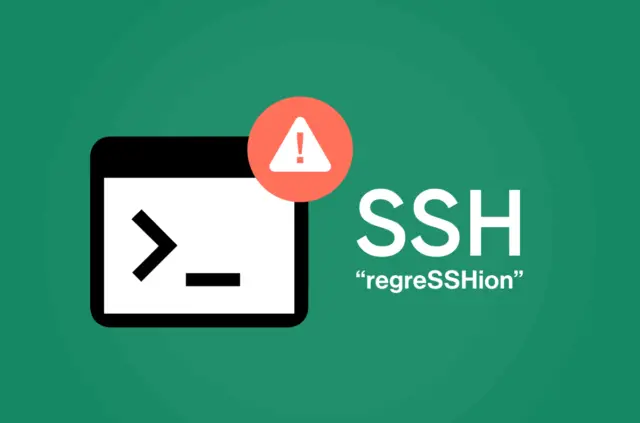
Multiple vulnerabilities have been discovered in OpenSSH, the widely used suite of secure networking tools. These flaws could allow attackers to perform man-in-the-middle (MitM) attacks and denial-of-service (DoS) attacks against vulnerable SSH servers. The severity of these vulnerabilities varies, but all require prompt attention from system administrators.
OpenSSH is a critical component for secure remote access and file transfer. It is used extensively across various operating systems, including Linux, macOS, and Windows. The widespread use of OpenSSH makes these vulnerabilities a significant concern for internet security.
One of the most concerning vulnerabilities involves a weakness in the sshd daemon, the OpenSSH server process. This flaw could allow a malicious actor to inject commands into an established SSH connection. A successful attack could grant the attacker control over the compromised server. This vulnerability is particularly dangerous because it could be exploited to steal sensitive data, install malware, or disrupt critical services.
Another discovered vulnerability relates to client-side processing of forwarded agent connections. This flaw could allow a malicious server to compromise a connecting client if agent forwarding is enabled. While less severe than the server-side vulnerability, it still poses a risk, especially in environments where agent forwarding is commonly used.
A separate vulnerability affects the scp command, used for secure file copying. This flaw could allow an attacker to manipulate the target directory during a file transfer, potentially leading to data corruption or unauthorized access.
Security researchers discovered these vulnerabilities and reported them to the OpenSSH development team. The OpenSSH team has released patches to address these issues. System administrators are strongly advised to update their OpenSSH installations to the latest version as soon as possible. Applying the patches is the most effective way to protect against these attacks.
The OpenSSH project maintains a detailed changelog and release notes that list all bug fixes and security updates. Administrators should consult these resources to understand the specific vulnerabilities addressed in each release. Regularly updating software is a crucial aspect of maintaining system security.
The discovery of these vulnerabilities underscores the importance of ongoing security research and responsible disclosure practices. Security researchers play a vital role in identifying and reporting vulnerabilities, helping to improve the overall security posture of software systems. The OpenSSH team’s prompt response to these reports demonstrates their commitment to security.
The vulnerabilities highlight the challenges of securing complex software systems. Even widely used and well-maintained projects like OpenSSH can contain hidden flaws. This reinforces the need for a multi-layered security approach, including firewalls, intrusion detection systems, and regular security audits.
Organizations and individuals should review their SSH server configurations and ensure that they are following security best practices. This includes disabling unnecessary features, using strong passwords or key-based authentication, and limiting access to authorized users only. Regularly monitoring system logs can also help to detect suspicious activity.
The impact of these vulnerabilities could be significant, given the widespread use of OpenSSH. A successful attack could lead to data breaches, system downtime, and financial losses. Therefore, it is crucial for system administrators to take immediate action to mitigate these risks. Updating OpenSSH to the latest patched version is the most important step.
The OpenSSH project has a strong track record of addressing security vulnerabilities. The prompt release of patches for these new flaws demonstrates their dedication to maintaining the security of their software. By staying informed about security updates and applying patches promptly, system administrators can help to protect their systems from these and other potential threats.
The security community has also played a role in disseminating information about these vulnerabilities. Security advisories and blog posts have been published to raise awareness and provide guidance to system administrators. This collaborative approach is essential for effectively addressing security challenges. The vulnerabilities serve as a reminder that security is an ongoing process, requiring constant vigilance and proactive measures.


















